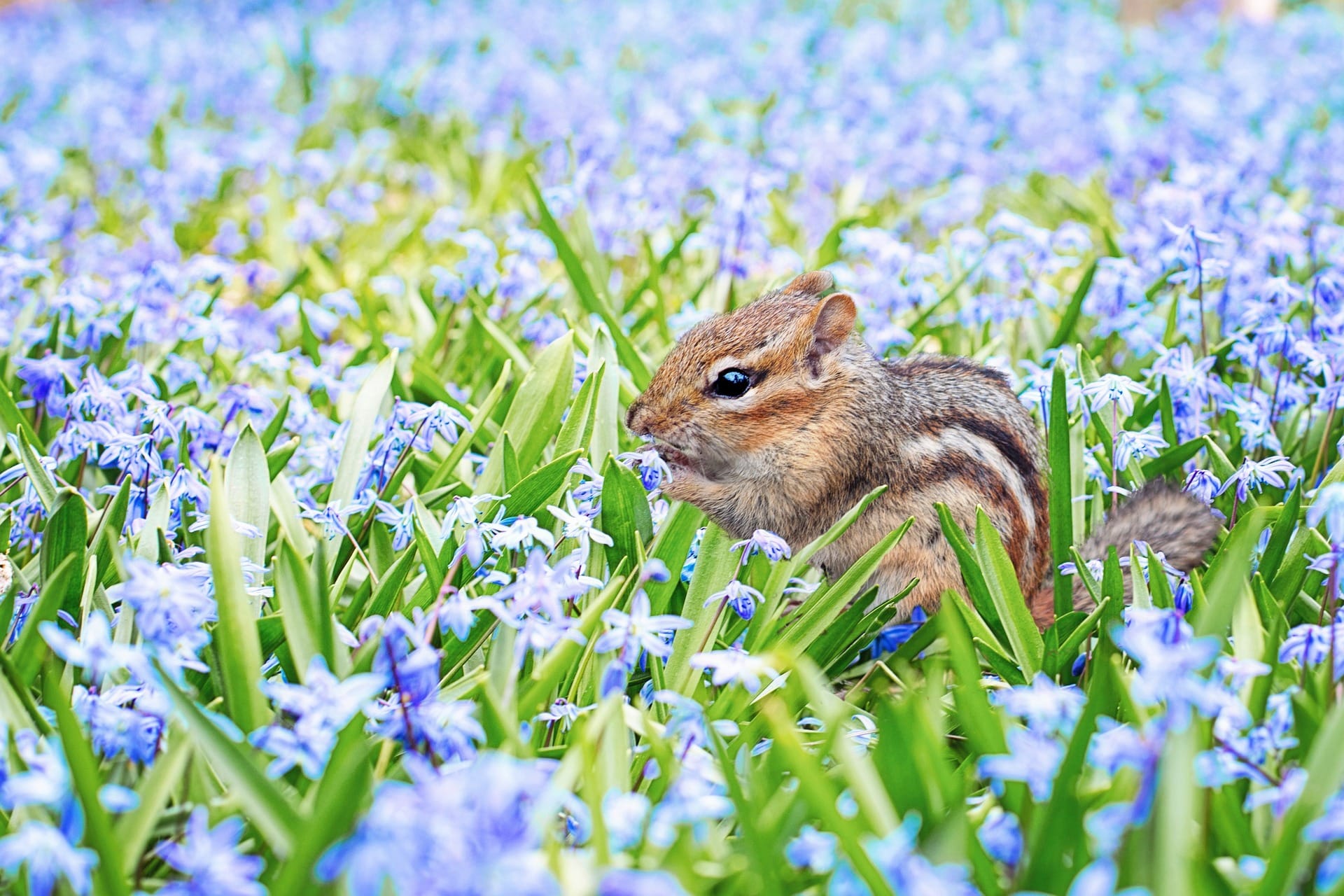For several years now, with the onset of autumn, Internet users have been sharing an interesting fact: supposedly in the fall, the brains of chipmunks grow in size; wiser animals, realizing their intelligence, become depressed and begin to consume fermented fruits, alcohols from which, in turn, return the brain to its previous state. We decided to check if such a story is real.
Usually the story is published in the following wording: “By autumn, the brain of the chipmunk Tamias tristis increases in volume in order to remember the location of the pantries. The chipmunk becomes smarter, which causes a fierce grief in him, which can only be combated by eating fermented fruit until the brain shrinks back to a comfortable size.” This entertaining fact about chipmunks actively share users social networks and blogs. Popular this story is like communities O animals, and in publics O wine. It can also be found in the media, for example in “Zene"Maxim magazine or on the resource "Media Salt"
The Chipmunks are a group rodents from the squirrel family, which includes three genera: Eutamias, Tamias and Neotamias. First kind consists of from just one species - the Asian or Siberian chipmunk (Eutamias sibiricus). The second is also represented by only one species - the eastern chipmunk (Tamias striatus). The genus Neotamias is the most numerous, according to the American Society of Mammalogists, it includes includes as many as 26 species.
The animal called Tamias tristis is not known to scientists. The Tamias genus, as already mentioned, are truly chipmunks. But tristis is a species longwings, belonging to the order Chiroptera (as bats and fruit bats are scientifically called), namely the New Guinea longwing (Miniopterus tristis). That is, a popular story on social networks describes an animal that does not exist in reality, something between a chipmunk and a bat. It is noteworthy that the species name tristis is similar to the Latin word for “sad”—probably, this definition is intended to emphasize the depressive-alcoholic behavior of a non-existent rodent.
The phrase Tamias tristis does not appear on the Internet until September 18, 2020. It was then in the “Other Nature” community (Facebook*, Telegram) and a story appeared about the unusual behavior of these rodents. The description of the channel on Telegram states: “Reports, reports and travel notes about the flora and fauna of this and neighboring worlds.” That is, this is a channel of fictitious news about animals - its authors, in particular, said that “azure fruit bat in fact, the same color as other fruit bats, simply lives on the Cote d'Azur and raids vineyards and cheese cellars," and "the homeless ant Aneuretus bomzhis does not build anthills, but instead settles in small nomes or squats along warm vines and in abandoned lairs of other insects.” The chipmunk Tamias tristis, with its outstanding behavior, was simply invented by the authors of Another Nature for entertainment purposes.
However, the story does have some merit—the brains of larder animals actually increase in size in the fall. For example, in Richardson's ground squirrels, the hippocampus, a part of the brain responsible for memory function, grows up by 15% during the entire period of collecting supplies for the winter. Similar changes scientists discovered in the Carolina squirrel, shrew and pine chipmunk (Neotamias amoenus). During hibernation, previously grown parts of the brain gradually decrease to their original state. However, scientific works devoted to these processes say nothing about the psychological state the animals are in after growing additional neurons in the hippocampus, much less about ways to normalize this state through alcohol abuse.
Moreover, no amount of extra neurons in the hippocampus will make anyone smarter or more aware. This area of the brain answers for the transition of information from short-term memory to long-term memory, as well as for spatial memory, that is, the ability to navigate. The most prominent role of the hippocampus shows the case of the American Henry Molaison. In the mid-1950s, to relieve epilepsy attacks, at the age of 27, he was offered surgery to destroy the hippocampus. Since then, he could not remember anything else, but he effectively used the knowledge and skills acquired before the operation. At the same time, his IQ increased from 104 to 112 points, and Molaison also began to solve crossword puzzles brilliantly. That is, an overgrown hippocampus will in no way make the rodent smarter; rather, damage to it could lead to an increase in IQ (very insignificant, and also associated with the deprivation of long-term memory).
Thus, the story of the unusual behavior of the chipmunk Tamias tristis is nothing more than satirical news about animals. At the same time, there is some truth in it - the hippocampus of rodents that organize pantries actually increases in size during the period of stockpiling. However, animals do not suffer from this at all and do not need to drink alcohol to return the brain to normal size. Instead, they just need to sleep - during hibernation, the hippocampus returns to normal volume.
*Russian authorities think Meta Platforms Inc., which owns the social networks Facebook and Instagram, is an extremist organization; its activities in Russia are prohibited.
Cover image: Jill Wellington from Pixabay
If you find a spelling or grammatical error, please let us know by highlighting the error text and clicking Ctrl+Enter.






